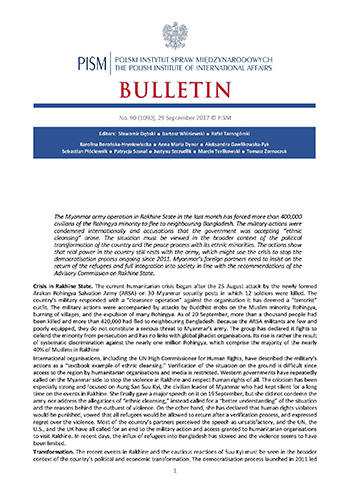Political Consequences of the Parliamentary Elections in Slovakia
Political Consequences of the Parliamentary Elections in Slovakia
Author(s): Dariusz Kałan
Subject(s): Governance, Government/Political systems
Published by: PISM Polski Instytut Spraw Międzynarodowych
Keywords: Slovakia; Central Europe; domestic policy; elections; parliamentary elections; political parties
Summary/Abstract: The poor result of the ruling party SMER–SD, the presence in the new parliament of a party referring to fascist symbols, and the overall fragmentation of parliament make the creation of a stable coalition government in Slovakia unlikely. The elections revealed Slovaks’ fatigue with traditional parties, which in the last decade have not been able to meet economic expectations, improve the quality of public services or outline positive plans for future development. Less important, as it turned out, was Prime Minister Robert Fico's anti-immigrant campaign, which contributed more to the success of radicals than of SMER–SD. Regardless of which party forms the government, the existing foreign policy priorities of Slovakia will probably not change, including its good neighbourly relations with Poland.
Series: PISM Bulletin
- Page Count: 2
- Publication Year: 2016
- Language: English
- Content File-PDF

